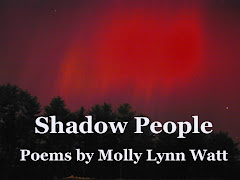Immediately following the swearing in and speech of Barach Obama, now 44th President of the United States of America, we watched Elizabeth Alexander step up to the podium. She is the fourth poet invited to give an occasional poem at any inauguration. She follows Robert Frost, Maya Angelou and Miller Williams. She is a Yale University Professor, a former Radciffe Fellow, an African American scholar and poet. As a toddler, her parents carried her to the Mall for the March on Washington in 1963. I had pondered for days, what might a poet say? I did not envy her as stood with the whole world attending. She wore a bright red coat, signaling by her choice of color, some of what I was feeling: passion, blood, excitement, danger, fire, ambition and yes, imperial. She paused, raised her face, and in a deliberate, clear voice said her poem’s first line, “Praise song for the day.”
Praise song is a musical genre, developed during the sixties and seventies, and used in some contemporary services to bring everybody in, to revitalize old ways of worship. Praise songs often use simple, repetitive lyrics accompanied on guitar. (You may order 2-CD sets of hits on Amazon or download them to your ipod.)
Perfect choice, I thought, no longer worried, I settled in to listen, to take the journey with her through her praise song.
“Each day we go about our business, walking past each other, catching each others’ eyes or not, about to speak or speaking. All about us is noise and bramble, thorn and din, each one of our ancestors on our tongues.” With this apparently simple everyday start, using everyday speech and everyday rhythm, she gathers all of us into her poem, like a storyteller would. I followed each image,“a woman and her son wait for the bus”, the person “patching a tire”, as she lists for us the work of repairing, the honor in repairing what is torn and broken, ripped or cracked. I, like the farmer, consider “the changing sky”, am ready to take my pencil out, and go with her to “the other side.” I, too, know, “There is something better down the road.” I will “walk into that which we cannot see.”
Alexander straightens, tells it plain and strong, “many have died for this day. Sing the names of the dead who have brought us here…” and now tears roll down my cheeks as I am remembering the cost of freedom: the Civil Rights Movement, the Civil War, the American Revolution, my grandmother and her trunk rocking across the sea from Ireland, my ancestors banished from a jail in Scotland to Virginia for practicing the Protestant religion, campaigning for this election in New Hampshire towns… Until I am called back by her voice, determined, asking, “What if the mightiest word is love…” “In today’s sharp sparkle, this winter air, anything can be made, any sentence begun.” I am ready, I am already “walking forward into that light.” I am already writing a new sentence.
Alexander’s poem intends to evoke in each of us our longest journeys and our highest yearnings, a call to a safe new day. She invites us to the honorable work of transforming our collective future from our blood-soaked past, into a more loving place. She does this in 14 three-lined stanzas and a one-line coda, “praise song for walking forward in that light.” She is a poet descendent of Walt Whitman, she is a songwriter descendent to the Shaker strains, “It’s a Gift to be Simple.”
Writing an occasional poem is a tall order, an honor most poets would be unwilling to risk. Before the Inauguration former Poet Laureate, Billy Collins said he did not envy Alexander as, “such poems are nearly impossible to bring off.” I think Alexander brought it off, despite a rumble among bloggers, She’s inviting us to follow her example and begin the work of writing our nation’s future. Let’s risk it, let’s accept.
Appeared in Cambridge Chronicle as Guest Commentary on January 29, 2009
Friday, January 23, 2009
Subscribe to:
Comments (Atom)

